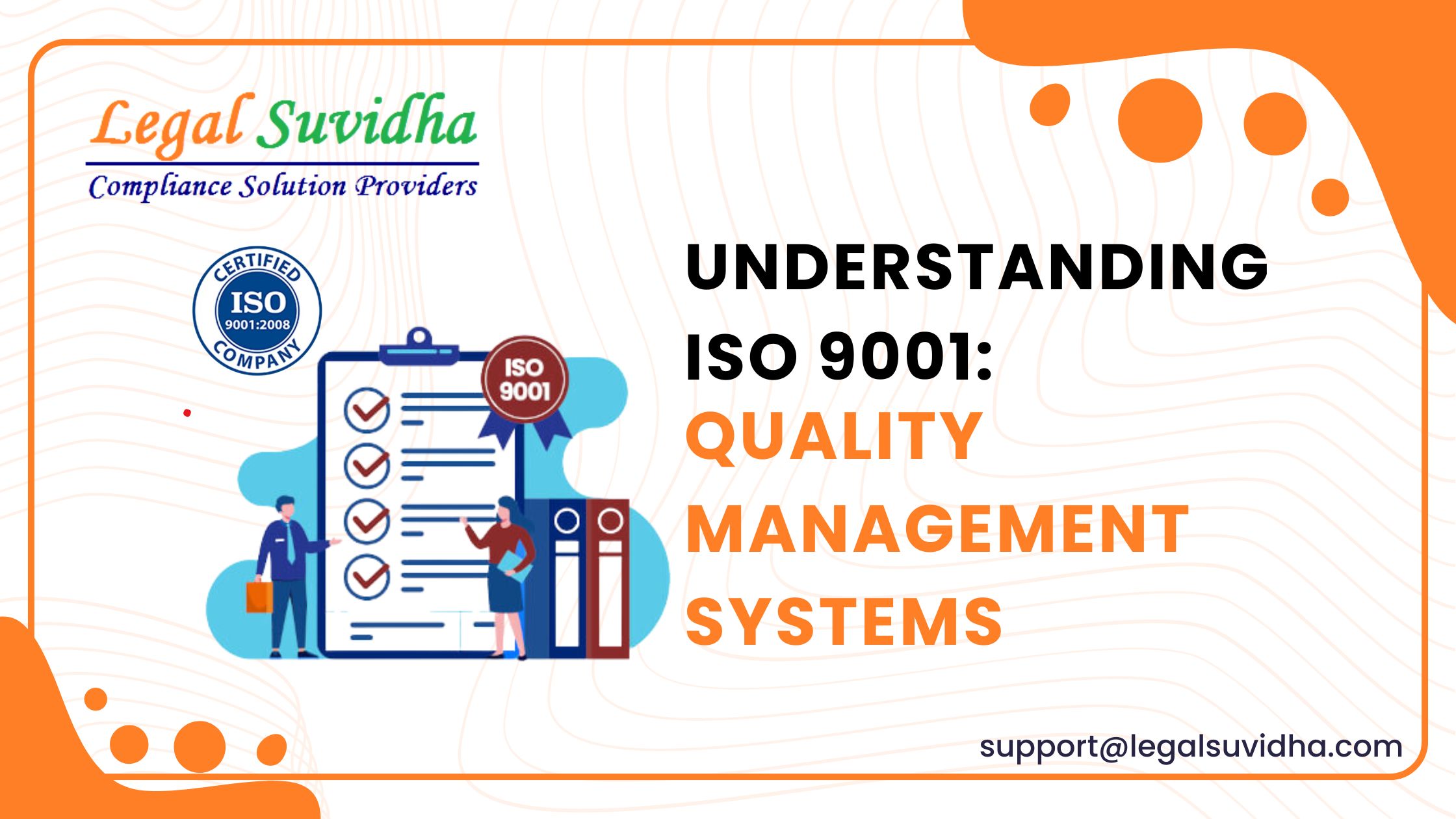Understanding ISO 9001: Quality Management Systems
What is ISO 9001?
This is a global standard for Quality Management Systems (QMS). It helps businesses make sure they consistently meet customer needs and improve customer satisfaction. It provides a simple framework for companies to improve their processes, boost efficiency, and maintain high-quality standards across all operations.
Key Principles of ISO 9001
- Customer Focus: It emphasizes understanding and meeting customer needs to make them happy and build lasting relationships.
- Leadership: It requires company leaders to play an active role in defining the quality policy and setting goals.
- Engagement of People: It highlights the importance of involving all employees in achieving quality goals.
- Process Approach: It takes a process-based approach, which means managing and improving processes to get the best results.
- Improvement: It encourages businesses to regularly review and improve their processes to get better over time.
- Evidence-Based Decision Making: It promotes making decisions based on facts and data, ensuring decisions are based on real information.
- Relationship Management: Managing good relationships with suppliers and other partners is important to maintaining a successful QMS.
Benefits of Implementing ISO 9001
Implementing ISO 9001 helps businesses provide high-quality products and services that meet customer needs. Other benefits include:
- Increased Efficiency and Productivity: It helps businesses streamline their operations, reducing waste and errors.
- Enhanced Risk Management: It helps identify and reduce risks before they become bigger problems.
- Competitive Advantage: Being ISO 9001 certified shows commitment to quality, which can set your business apart from competitors.
ISO 9001 Certification Process
- Preparation for Certification: The first step is setting up a QMS that follows the respective standards.
- Internal Audit: Internal audits check if your QMS is working well and identify areas for improvement.
- Certification Audit: An outside organization checks if your QMS meets ISO 9001 standards.
- Maintaining Certification: Once certified, businesses must keep meeting the standards and undergo regular audits to maintain certification.
ISO 9001 vs. Other Standards
- ISO 9001 vs. ISO 14001: ISO 9001 focuses on quality management, while ISO 14001 focuses on environmental management.
- ISO 9001 vs. ISO 45001: ISO 45001 deals with workplace health and safety, while ISO 9001 focuses on product and service quality.
Relevance of ISO 9001 Across Industries
ISO 9001 applies to many industries, including:
- Manufacturing: Ensures consistent product quality and meets regulatory requirements.
- Healthcare: Helps deliver high-quality patient care and manage compliance.
- Services: Standardizes service delivery and improves customer satisfaction.
- Construction: Manages project quality and meets safety standards.
- IT and Technology: Helps improve software development and product quality.
Common Challenges and Solutions
- Challenges in Implementation: Businesses may face challenges like resistance to change and lack of resources. These can be solved with clear communication and proper training.
- Solutions and Best Practices: Top management involvement, training, and realistic goal-setting help overcome these challenges.
Frequently Asked Questions (FAQs)
- What are the costs of ISO 9001 certification?
Costs depend on company size and QMS complexity. Small businesses may have lower costs compared to large corporations. - How long does it take to get certified?
It typically takes 6 to 12 months from preparation to certification, depending on the size and readiness of the organization. - Is ISO 9001 certification mandatory?
No, this certification is voluntary. However, many businesses choose to get certified to improve their processes and customer satisfaction. - What businesses can benefit from ISO 9001?
Businesses of all sizes and industries can benefit from this certificate. It is used in manufacturing, healthcare, construction, IT, and more. - Can ISO 9001 help with customer satisfaction?
Yes, It helps businesses meet customer needs more effectively, leading to improved customer satisfaction. - Does ISO 9001 require a lot of paperwork?
While It does involve documentation, modern versions of the standard focus more on practical processes rather than excessive paperwork. - What happens if my business doesn’t pass the certification audit?
If your business doesn’t pass, the certification body will provide feedback on what needs to be improved, and you can apply again after making changes. - How often do we need to get re-certified?
This certification is usually valid for three years. After that, your business must go through a re-certification audit to keep the certification. - What is the difference between ISO 9001 and ISO 14001?
It focuses on quality management, while ISO 14001 deals with environmental management systems. - Do I need an external consultant to implement ISO 9001?
While not mandatory, many businesses hire external consultants to help with the implementation of ISO 9001, especially if they lack internal expertise.
Conclusion
It is a valuable tool for businesses looking to improve their quality management. By following ISO 9001 principles, businesses can improve customer satisfaction and gain a competitive edge.
Authorized Links:
For more details on ISO standards, visit the ISO Official Website.
Learn more about the certification process from the IAF – International Accreditation Forum.




















